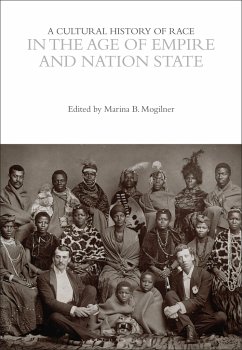This volume covers the cultural history of race in 'the long 19th century' - the age of empire and nation-state, a transformative period during which a modern world had been forged and complex and hierarchical imperial formations were challenged by the emerging national norm. The concept of race emerged as a dominant epistemology in the context of the conflicting entanglement of empire and nation as two alternative but quite compatible forms of social imaginary. It penetrated all spheres of life under the novel conditions of the emerging mass culture and mass society and with the sanction of anthropocentric and positivistic science. Allegedly primeval and parasocial, 'race' was seen as a uniquely stable constant in a society in flux amid transforming institutions, economies, and political regimes. But contrary to this perception, there was nothing stable or natural about 'race.' The spread of racializing social and political imagination only reinforced the need for constant renegotiation and readjustment of racial boundaries. Therefore, avoiding any structuralist simplifications, this volume looks at specific imperial, nationalizing, and hybrid contexts framing the semantics and politics of race in the course of the long 19th century. In different parts of the globalizing world, various actors were applying their own notions of 'race' to others and to themselves, embracing it simultaneously as a language of othering and personal subjectivity. Consequently, the cultural history of race as told in this volume unfolds on many levels, in multiple loci, and in different genres, thus reflecting the qualities of race as an omnipresent and all-embracing discourse of the time
Bitte wählen Sie Ihr Anliegen aus.
Rechnungen
Retourenschein anfordern
Bestellstatus
Storno








